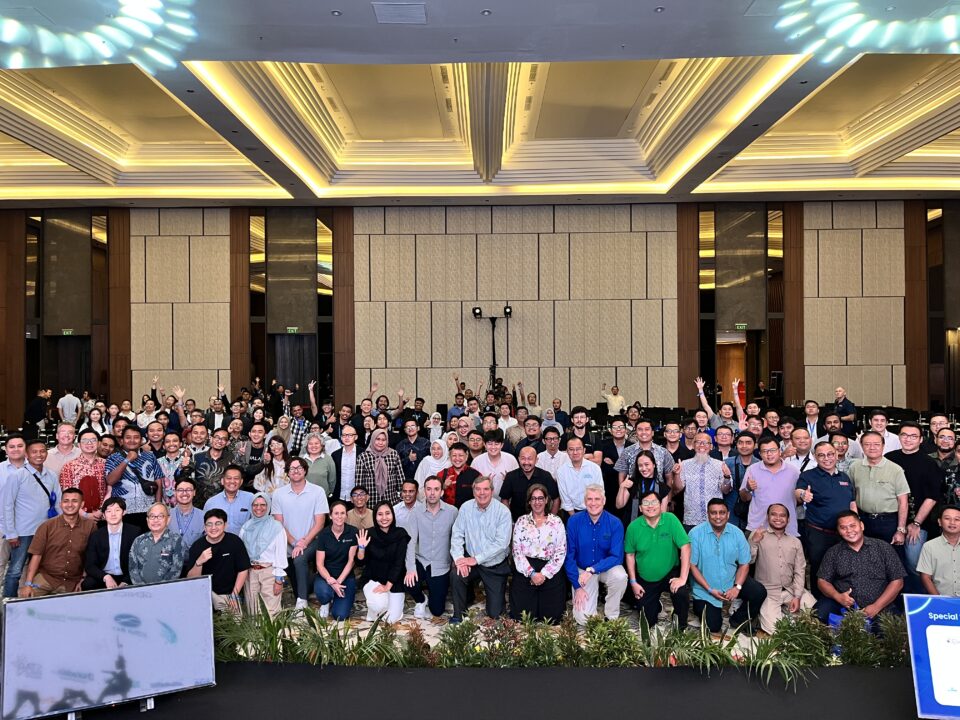
The 20th anniversary of the S.E. Asia U.S. Agricultural Cooperators Conference, held in Ho Chi Minh City, Vietnam, saw more than 450 participants from over 20 countries gather to discuss the future of global agriculture. Organized by the U.S. Soybean Export Council (USSEC), U.S. Grains Council, and U.S. Wheat Associates, the event marked two decades of successful collaboration between U.S. agricultural stakeholders and Southeast Asia.
The conference's theme, "Leaders in Agriculture: Delivering Global Solutions Together," reflected the ongoing commitment to sustainable agricultural practices, trade innovation, and partnerships. Attendees also engaged in networking and business-to-business meetings, reinforcing the collaborative spirit essential for addressing global food security challenges.
Ralph Bean, Agricultural Counselor for Vietnam from USDA Foreign Agricultural Service emphasized Southeast Asia's vital role as a trading partner for the United States. He noted that the conference not only showcases U.S. agricultural products but also strengthens industry and government collaborations, ensuring continued partnership.
Innovation in Global Agricultural Solutions
Jim Sutter, CEO of the U.S. Soybean Export Council, highlighted the U.S. commitment to sustainability: “U.S. farmers have long been leaders in sustainable agriculture, continually improving practices to meet the world’s growing demand for safe, high-quality food.” He pointed out the resilience of the U.S. soybean industry, noting the record soybean crop and increased U.S. soybean meal production despite emerging challenges.
“Collaboration across the supply chain—from growers to exporters—ensures that sustainability and quality standards remain high, benefiting both current and future generations,” said Ryan LeGrand, President and CEO of the U.S. Grains Council, during his remarks at the event.
Joe Sowers, Vice President for Southeast Asia at U.S. Wheat Associates, emphasized the importance of trust in international trade. “Our long-standing relationships in Southeast Asia are built on trust, reliability, and the consistent quality of U.S. wheat,” he said, adding that the U.S. remains adaptable to evolving market needs while maintaining high standards.
“For two decades, this conference has been a key platform for building strong relationships and advancing shared goals in agriculture between the U.S. and Southeast Asia. Through this continued collaboration, we’ve been able to bring innovation and sustainability to the forefront, ensuring our agricultural systems are equipped to meet the growing demands of the region,” said Timothy Loh, Regional Director, Southeast Asia and Oceania at USSEC.
Advancing Grain Shipping and Trade
Innovation in grain shipping and logistics emerged as a central topic during the conference. With global trade corridors facing increasing pressure—from bottlenecks in the Panama Canal to geopolitical tensions—the event highlighted the need for more efficient transportation routes for U.S. agricultural exports. Speakers noted that the Pacific Northwest has emerged as a cost-effective route for U.S. grain and soybean exports, providing a competitive advantage over other global suppliers.
Experts like Ken Eriksen, Managing Partner at Polaris Analytics and Consulting and Voytek Chelkowski, Managing Partner at Seamind Blue Ocean addressed the audience with insights on the future of sustainable shipping practices and the role these innovations will play in maintaining the U.S.'s competitive edge in global markets. Their discussions shed light on how logistical advancements are essential for maintaining the reliability and sustainability of U.S. agricultural exports to Southeast Asia.
Economic Resilience and Future Growth
The evolving regulatory landscape in global agriculture was also a focal point of the conference. Participants discussed the importance of innovation and adaptation in navigating new environmental regulations while maintaining product quality. A panel session featuring U.S. Soy and corn producers shared their experiences on the frontlines of U.S. agriculture, emphasizing that technological advancements and sustainable practices are key to the industry's continued growth.
Looking ahead, U.S. agricultural stakeholders expressed optimism for the future of U.S.-Southeast Asia trade relations. With advancements in farming technology and logistics, both regions are poised to benefit from stronger economic ties and more resilient supply chains. The partnerships established and strengthened at the conference will play a crucial role in ensuring food security and economic stability across Southeast Asia for years to come.
Celebrating Two Decades of Collaboration
The S.E. Asia U.S. Agricultural Cooperators Conference concluded with a strong sense of purpose and a clear path forward. Over the last 20 years, the event has become a vital platform for fostering collaboration between U.S. agriculture and Southeast Asia. By continuing to prioritize innovation, sustainability, and trade, the U.S. remains committed to supporting Southeast Asia’s growing agricultural needs and driving progress in the global agricultural sector.

###
This story was partially funded by U.S. Soy farmers, their checkoff and the soy value chain.
